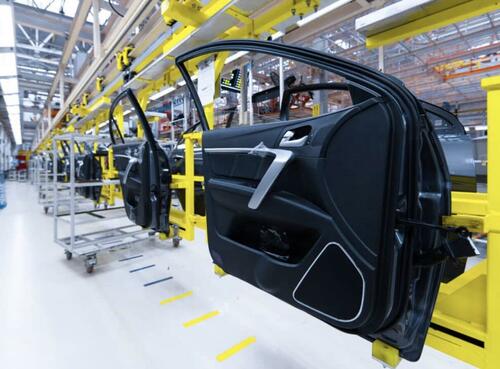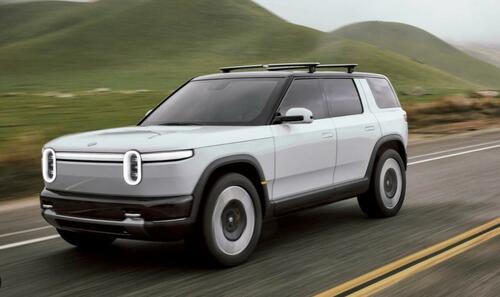In a new note out this week, Deutsche Bank laid out how it believes auto OEMs are going to shift their businesses to adapt to tariffs.
Deutsche Bank reports that automakers (OEMs) are adopting a wide range of strategies to navigate the uncertainty—adjusting pricing, incentives, and production plans on a rolling basis.
The situation remains highly fluid, with the Trump administration recently floating the possibility of temporarily suspending tariffs to allow more time for OEMs to adjust. However, Deutsche Bank emphasizes that the market should operate under the assumption that “all imported vehicles are currently subject to the 25% tariff,” with imported parts facing similar duties starting May 3.
In its April 15 update, Deutsche Bank observes, “Across OEMs, we continue to see a dispersion of reactions.”
For instance, Tesla has paused sales of U.S.-built Model X and S vehicles in China, while GM halted operations at its CAMI Assembly Plant. Mazda, Mitsubishi, and Subaru have also taken a variety of measures—ranging from absorbing price increases to stopping U.S. inventory shipments altogether.
Among notable strategic shifts, Ford is offering broad employee pricing discounts and reshuffling production to its Fort Wayne facility and Honda has publicly stated it will not raise consumer prices as it evaluates its response.
Meanwhile, Infiniti has indefinitely paused production of two crossover models built in Mexico and Rivian and several other EV manufacturers have so far maintained operations but are assessing longer-term impacts.
While some OEMs are absorbing tariff costs temporarily—Mazda, for instance, will do so through April—others are preparing to pass the cost downstream. Deutsche Bank notes that despite a lack of sweeping public announcements, “the cost impact will not be trivial,” as one unnamed CEO warned.
Deutsche Bank continues to track weekly developments and offers updated data in spreadsheet form upon request, cautioning investors that policy developments could shift “overnight.”
We noted earlier this week Deutsche was still cautious on auto stocks. In a note on Monday it said that as Q1 2025 earnings approach, automakers still face significant uncertainty from new tariffs. They expect strong early-year demand as consumers buy ahead of price hikes, followed by a slowdown in the second half as tariffs bite—pushing 2025 U.S. auto sales to 15.4 million, down from 16.0 million in 2024.
Ford and GM could see gross costs rise by over $10 billion, while Tesla and Rivian face smaller impacts due to their supply chains, the note said. These estimates assume a 25% tariff on imported vehicles and parts starting May 3, with exemptions for USMCA-compliant content.
Deutsche said it believes automakers will share the cost burden with dealers and consumers and use various cost-offsetting strategies. Still, Ford and GM may see a $4–7 billion EBIT hit annually.
"In such a context, we think Rivian may have the cleanest set-up given its relatively small exposure to the tariffs and prospects for a strong R2 product cycle (naturally subject to execution risk though)," analysts wrote.
"We continue to view Tesla favorably longer term as an embodied AI secular winner but acknowledge it faces many cross currents for the next quarter or two.
Loading...

